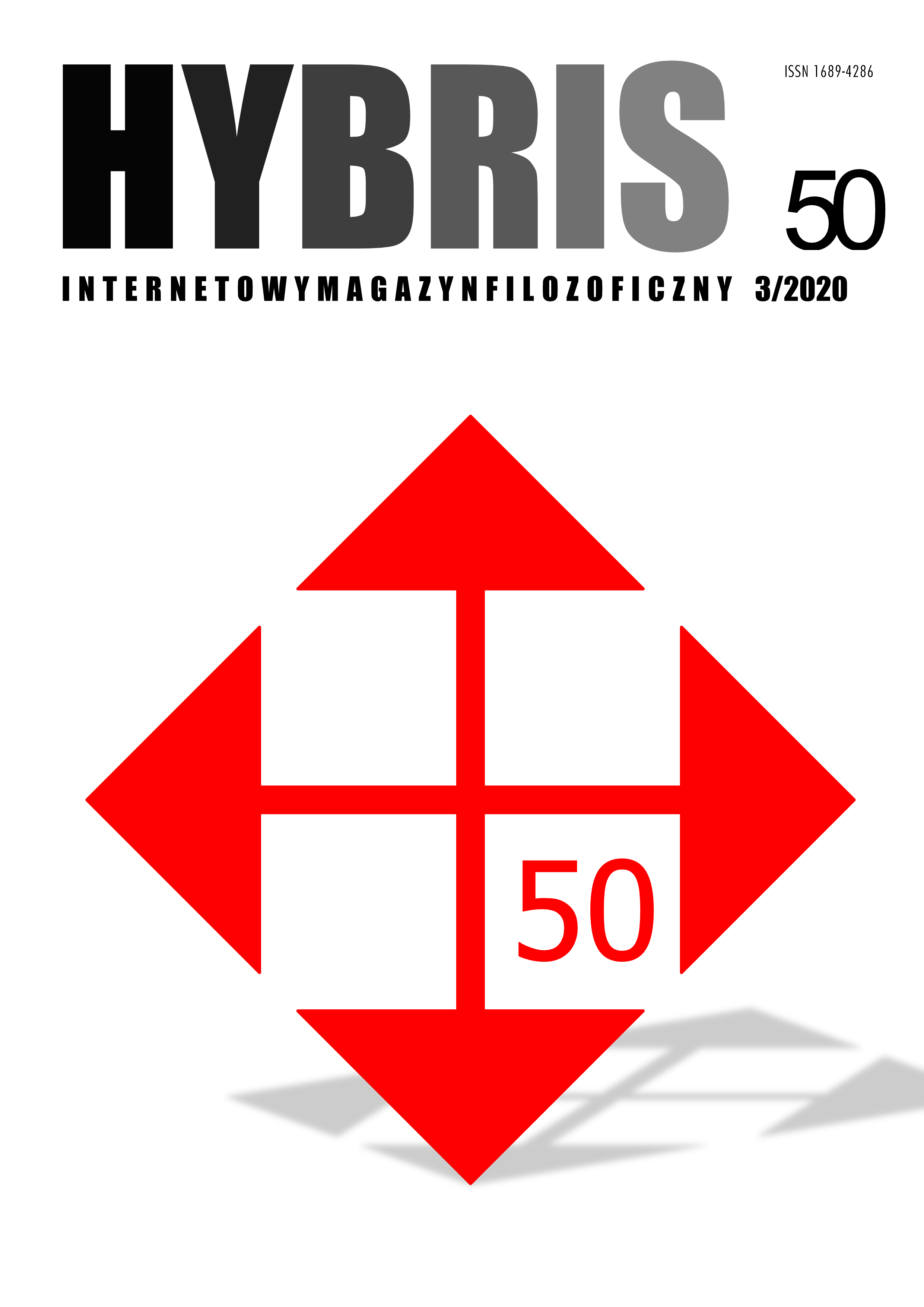Unitary and dualistic aspects of anthropology by Thomas Aquinas in relation to a human being as imago dei
DOI:
https://doi.org/10.18778/1689-4286.50.02Keywords:
Thomas Aquinas, anthropology, philosophic psychology, soul, body, form, substance, imago DeiAbstract
The present text deals with two layers of philosophic psychology/anthropology in the works of Thomas Aquinas and strives to examine the mutual relationships and interrelated meanings between these layers while paying particular attention to the biblical image of a human being as imago Dei. With respect to this aim, the paper contains a justification of the distinction between philosophic psychology, which understands soul as a substantial form of the human being, and dualistic philosophic psychology, which views soul as the subject of activities, or as incomplete substance. This distinction is then confirmed as confronted with the way Thomas Aquinas delimits the human being as imago Dei in his Summa Theologiae, by which means the way we understand this expression becomes more exact, and the importance of Thomas's dualistic terminology, which we encounter in his works, is emphasised at the same time.
References
Aertsen, J. A. (2005). Aquinas and the Human Desire for Knowledge. American Catholic Philosophical Quarterly 79, 411˗430.
View in Google Scholar
DOI: https://doi.org/10.5840/acpq200579325
Aristotle (1987). De anima/On the soul. Penguin Classics.
View in Google Scholar
Armstrong, A. H. (2002). Filosofie pozdní antiky. Praha: Oikúmené.
View in Google Scholar
Bazán, C. B. (1983). La corporalité selon saint Thomas. Revue Philosophique de Louvain, 80, 369-409.
View in Google Scholar
DOI: https://doi.org/10.3406/phlou.1983.6253
Bazán, C. B. (1991). The Highest Encomium of Human Body. Litera, sensus, sententia, 99-116.
View in Google Scholar
Bazán, C. B. (1996). Pluralisme de formes ou dualisme de substances? Revue Philosophique de Louvain, 67, 30˗73.
View in Google Scholar
DOI: https://doi.org/10.3406/phlou.1969.5476
Bazán, C. B. (1997). The Human Soul: Form and Substance? Thomas Aquinas' Critique of Eclectic Aristotelianism. Archives d'Histoire Doctrinale et Littéraire du Moyen Âge, 64, 95˗126.
View in Google Scholar
Bieniak, B. (2010). The Soul-Body Problem at Paris, ca. 1200˗1250. Hugh of st. Scher and his Contemporaries. Leuven: Leuven University Press.
View in Google Scholar
DOI: https://doi.org/10.2307/j.ctt9qdzd9
Davidson, H. A. (1986). Averroes and the Material Intellect. Viator, 17, 91-137.
View in Google Scholar
DOI: https://doi.org/10.1484/J.VIATOR.2.301407
Mensching, G. (2006). Tomáš Akvinský a světlo rozumu. Studia philosophica, B53, 31˗39.
View in Google Scholar
Pasnau, R. (2004). Thomas Aquinas on Human Nature. Cambridge: Cambridge University Press.
View in Google Scholar
DOI: https://doi.org/10.1017/CCOL0521806038.010
Shin, Ch.-S. (1993). „Imago Dei“ und „Natura Hominis“. Der Doppelansatz der thomistischen Handlungslehre. Würzburg: Königshausen & Neumann.
View in Google Scholar
Slováček, P. (2014). Filosofické základy psychologie Tomáše Akvinského. Studie k filosofické psychologii a metafyzice vrcholného středověku. Opava: Slezská univerzita v Opavě.
View in Google Scholar
Sweeney, M. J. (1999). Soul as Substance and Method in Thomas Aquinas´ Anthropological Writings. Archives d'Histoire Doctrinale et Littéraire du Moyen Âge, 66, 43˗87.
View in Google Scholar
Tomarchio, J. (1998). Four indices for the Thomistic principle quod recipitur in aliquo est in eo per modum recipientis. Mediaeval Studies, 60, 315˗368.
View in Google Scholar
DOI: https://doi.org/10.1484/J.MS.2.306684
Tomarchio, J. (2000-2001). Aquinas´s Division of Being According to Modes of Existing. The Review of Metaphysics, 54, 585˗613.
View in Google Scholar
Verbeke, G. (1977). Introduction Doctrinale. In: S. Van Riet (ed.), Avicenna Latinus, Liber de Philosophia Prima sive Scientia Divina I-IV. Leiden.
View in Google Scholar
DOI: https://doi.org/10.1163/9789004451261
Wippel, J. F. (1984). Metaphysical Themes in Thomas Aquinas. Washington: The Catholic University of America Press.
View in Google Scholar
Wippel, J. F. (1988). Thomas Aquinas and the Axiom “What is received is received according to the mode of the receiver. In: Salinger, R. L. (ed.), Straight Path (279˗289). Washington: Catholic University of America.
View in Google Scholar
Zavalloni, R. (1951). Richard de Mediavilla et la controverse sur la pluralité des formes. Louvain.
View in Google Scholar
Downloads
Published
How to Cite
Issue
Section
License

This work is licensed under a Creative Commons Attribution-NonCommercial-NoDerivatives 4.0 International License.






